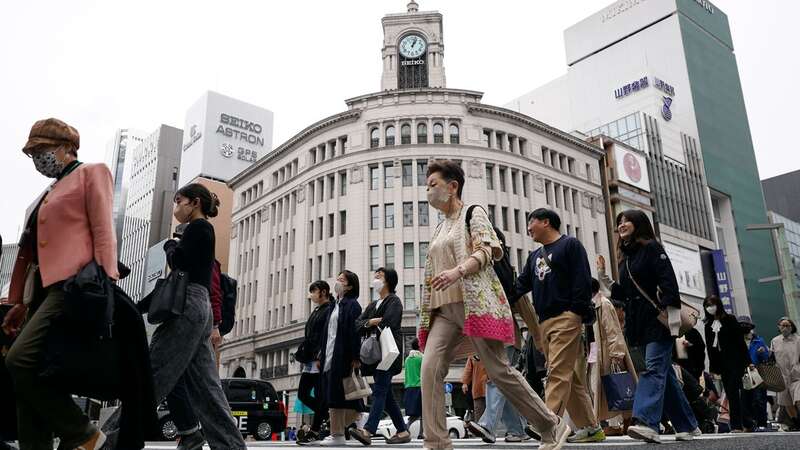
The Japanese economy has contracted at an annual rate of 2% in the first quarter of this year, as both consumption and exports have seen a decline, according to government data released on Thursday.
Despite the world's fourth largest economy maintaining a relatively low unemployment rate of about 2.6%, wage growth has been sluggish and prices have increased partly due to the yen's weakness against the US dollar. On a quarter-to-quarter basis, the preliminary seasonally adjusted gross domestic product, or GDP, which measures the value of a nation's products and services, slipped by 0.5% in the January-March period, the Cabinet Office reported.
The annual rate is a measure of what would have happened if the quarterly rate had continued for a year. Recently, the Japanese yen has been trading at lows not seen in three decades, with the US dollar costing about 155 yen. This has boosted tourism but has negatively impacted spending power, especially for a nation that imports almost all its energy.
The latest results were generally worse than what analysts had predicted. Lacklustre consumer spending is a significant issue since private consumption makes up half of Japan's economic activity. Also impacting growth were issues at automaker Toyota Motor Corp. 's subsidiary, although production has now resumed.
Earlier this year, the Japanese government ordered Daihatsu Motor Co. to halt production of its entire lineup due to falsified safety test results. Robert Carnell, an analyst at ING, pointed out that the car production and sales disruptions due to the safety scandal had dragged down overall growth, but suggested a rebound is on the horizon. "Monthly activity data already shows a gradual normalization since March," he observed.
 Britain faces the worst recession among G7 partners, economists predict
Britain faces the worst recession among G7 partners, economists predict
The fresh figures pose a conundrum for Japan's central bank regarding the timing of further interest rate hikes, which are anticipated sooner rather than later, potentially in July. With the economy in a fragile state, policy makers are expected to tread more carefully. Earlier this year, the Bank of Japan nudged up interest rates for the first time since 2007, albeit modestly from minus 0.1% to a range between zero and 0.1%.
Read more similar news:
Comments:
comments powered by Disqus

































